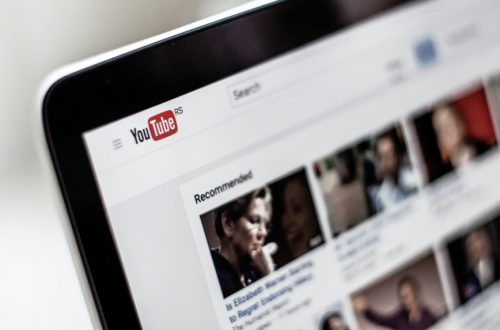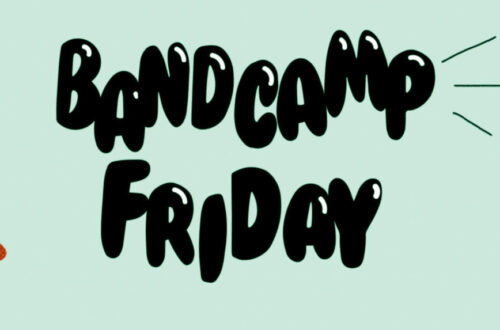
How to get stuff done and get rid of creative debt
People often ask me, how I manage multiple collaborations and projects at the same time and finish so many musical projects. There’s no easy answer, but I try to give some tips and tricks how I handle reoccurring issues and get stuff done.
Creative debt
Technical debt happens when you implement your solution as quickly or easy as possible without thinking about long-term consequences. It’s a term from software development that describes the huge amount of work to fix a problem that is rooted in a decision you took many months and years ago. This concept can be applied to many fields of work, including creativity. Creative debt most often occurs, when you start a new project without finishing your previous ones. To get rid of creative debt, it’s best to accumulate as less as possible, which means (a) have a great concept and (b) evaluate it and (c) maintain and check your running projects and (d) document everything well. Creativity may be untamable, but if you’re interested in getting stuff done, there are a few rules to stick.
Biggest impediments and distractions
Look, there’s a squirrel!
It can be so tempting to turn that spontaneous guitar riff into a new song. If you don’t jot down the idea from beginning to end, you may forget about it next week. So you record a guitar riff or loop. After a few months, you have a dozen great guitar riffs and 8-bar loops, but no song. Listening to your old drafts some months later, you may not be able to reconstruct the emotion or reason you recorded it. You jam along for half an hour, but you cannot find a verse to an existing chorus. Later, you may come up with the idea of merging multiple loops into a song, but they won’t sound consistent. You’re stuck. Worst of all, you cannot delete your 8-bar loops and guitar riffs, because each of them sounds like a potential hit.
Take a look into your archives. How many of these 8-bar songs did you turn into a full song? I bet you’re better off recording a dirty one-take draft of the whole song instead of a perfect recording of the riff. Don’t forget to write down the chord progressions, tabs or lyrics. In case you want to rerecord this draft neatly, it will be much easier to remember the emotion and learn the song.
Neglecting your needs
Most creatives get super inspired and hyper when they’re asked to collab, so they say yes to everybody. They may be hyper focussed and get the first two songs recorded. Suddenly the big pile of promises feels like a heavy weight. You may get some stuff done if you turn your nights into days or force yourself to draft. You may feel guilty of promising things you cannot keep. It’s impolite to cancel three months after your commitment, so you try to postpone in hope that you find more time or inspiration someday soon. After a few weeks or months, your collab partners may get nervous or angry because they wait for your part.
Be honest. You have burnt the candle on both ends. Decide if you (a) step out and burn bridges or (b) keep your promise with a massive delay while avoid writing new songs. In the long run, keep track of your capacity and needs. Learn to say “no” when you’re full. In the worst case, cancelling projects before somebody wrote, recorded or adapted anything for you is even better than letting your band wait for months and years. The band might still have a chance to find a new person and tailor it to their needs.

Piling up too many projects
Not everybody is made for multitasking. I am multitasking for years, because I cannot work on a sad ballad when I’m angry. I usually have two, but sometimes also five completely different projects in parallel. Being highly dependent on other people’s recordings, I can use my waiting time for working on other projects or preparing social media posts. Multitasking is fine, if documentation is your secret superpower. You need a lot of self-discipline to focus and finish things even if you’re not fully in the mood to master a ballad.
However, most people work on many different songs as an excuse to look busy. They’re procrastinating because they’re scared of finishing or scared of admitting that they’re stuck and need help. Having too many projects at once can lead to decision paralysis and information loss due to context switching. Which song do I do next? What was missing in this song, again? If you find yourself switching between many things without finishing anything, you may have hit your capacity limit or a creative block. More below.
I have a big spreadsheet with ALL running projects with status and to do’s. I know who is working on which song and what I have to do. This won’t help you, if you’re a rather chaotic and spontaneous person. You should try to set a maximum amount of parallel projects, get them done as soon as possible and learn to say “no”.
Trap of perfectionism
Talking to fellow songwriters, I often hear something like “I cannot finish this song. We need a great solo, but it’s not good enough”. It’s OK to be stuck here and there. But sometimes, we have to take a decision if we want to get the best possible solo (and put this song on hiatus for years) or perform an average solo to get the song done. Even if you decide to get the best possible solo, it doesn’t mean that YOU have to record or write it. If you’re stuck for too long – ask your best friend for a collab. They might come with an idea you never thought of. Perfectionism is a trap. Most people won’t bother if that solo has been played by an organ or guitar, if it suits the song. Nobody is able to read your mind and listen to your original idea.
Circumventing the critical path
When I write songs, I think about them as projects. My role as songwriter, arranger and producer is related to project management. I have a clear goal (release a full recorded song), a deadline (release date), a product vision (for example a hard rock song about driving down the Route 66) and a team (band members). I can break it down into milestones (draft, recording, mixing) and subtasks (record guitars), that can be assigned to different people.
If you’re deep into project management, you may be heard of a critical path. It’s the longest chain of tasks that cannot be completed without the previous. This may result in massive delays or cancellation. The critical path points out, that you cannot parallelize everything. Same in songwriting – It’s pointless to record the vocals in parallel to the backing track. The vocalist won’t be able to jump into the groove of the rhythm section or circumvent the lead guitar. Most likely, one of them has to rerecord. This will end up in fights.
Try to find your critical path and force people to stick to it. If they don’t, your bandmates may not be the right people to work on a multi-collab or musical chain letter with many dependencies. You can still have fun with them in a jam session or in a two-way collab. Otherwise, you may have to take hard decisions like: cancel, restaff or postpone. Nobody will be happy about them!
Out of fuel
Are you completely out of ideas? Or busy working on twenty projects in parallel? Sometimes it’s better to stop and get things done. There’s nothing wrong about a creative hiatus if you communicate it to your collab partners and bands. You don’t have to be there 24/7 and write 365 songs a year. Writing too much can lead to creative debt, too.
Take a break and decide which songs are worth finishing. Are there some you can achieve on your own? Some that may need a little help from your friends? Is it better to cancel or archive some? Don’t start new projects while you’re sitting on a pile of unfinished songs. Otherwise, your creative debt will grow bigger and bigger. It won’t help you to refuel.
How can I get rid of creative debt?
- Set a limit of projects you run in parallel
Think about the amount of projects you can record or manage. It helps a lot, when songs are very different in genre or mood. - Set an expiration date for your draft
Set a deadline to all unfinished drafts, 8-bar loops and guitar riffs. Delete or archive the projects that are not touched within deadline. Sometimes a hard cut is necessary. Delete everything you cannot hum along without opening the file. - Communicate milestones to the public
Force yourself to get a song done by communicating the release date to the public. - Take care of the critical path of a collaboration
If you manage multiple bands or collaborations, it’s crucial to realize which steps have to follow another. Take decisions if things go awry. - Learn to say “no”
Communicate frankly when you’re overwhelmed with life and collaborations. People, who love to work with you, will understand that they cannot have you now. They will ask you for a different song later. - Admit that you love chaos and get it done now!
If you’re a chaotic and spontaneous person, it’s pointless to force your creativity to work in a scheduled way. Admit that you’re easily distracted and use that focus to get involved NOW and FINISH. Give yourself a deadline of one or two weeks. If you lost your focus, tell your collab that it’s not gonna happen. It’s easier for them to find a new person instead of waiting for your chaos to align in the same stellar constellation. - Allow yourself to write bad songs (and trash them)
You may have fallen into the trap of perfectionism after receiving plenty of appreciation for your last song. The pressure of getting something out that is nearly as good as the previous one endangers creativity. Allow yourself to write the worst song ever. A cliché laden festival of bad lyrics on a 4 chord progression may not only make you smile, but also turn songwriting into a muscle. You cannot write awesome songs for years, so allow yourself to be average. Jot down a dozen songs you truly hate and trash them. Maybe a great song will appear in between them.




